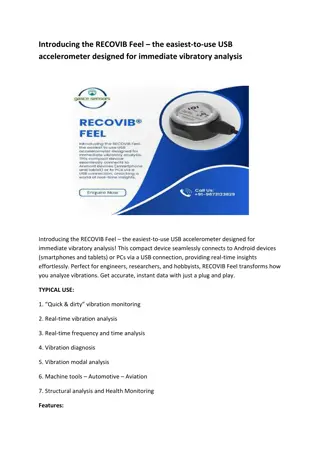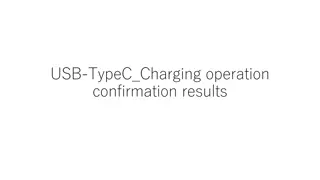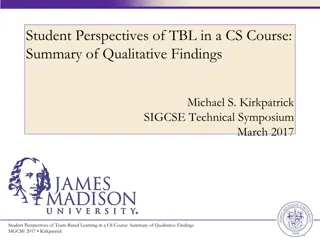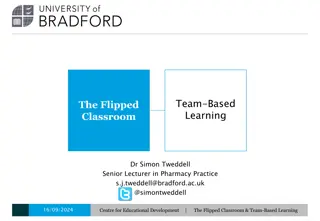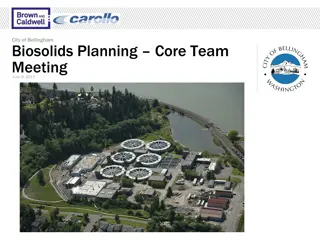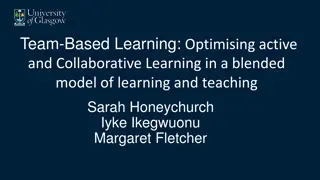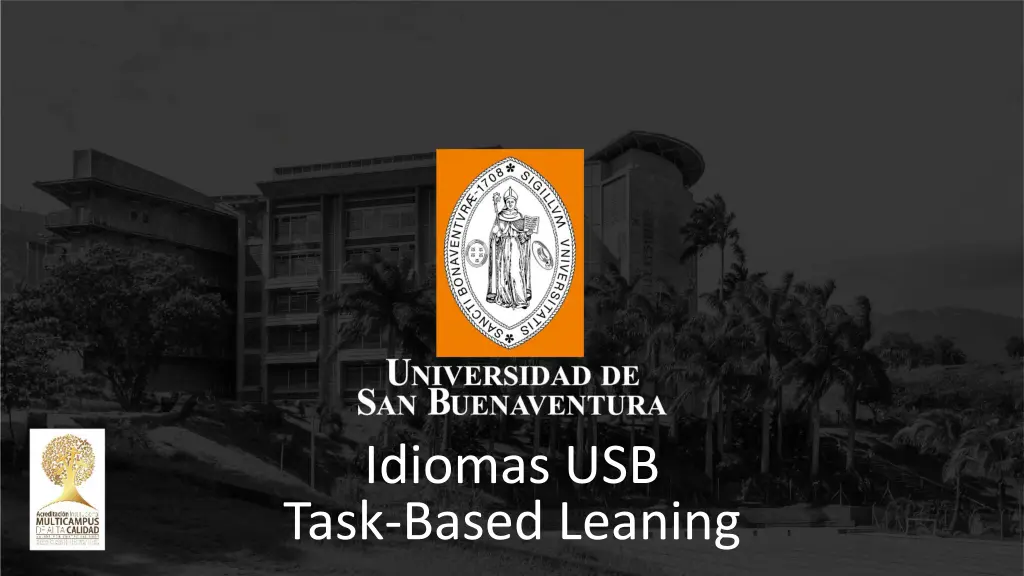
Task-Based Learning: Phases, Tasks, and Characteristics Explained
Task-Based Learning (TBL) is an approach that focuses on meaningful tasks for language learning, with phases including pre-task, task, and post-task. The method emphasizes authentic communication, group work, and self-evaluation, promoting the use of the target language in a practical context.
Download Presentation

Please find below an Image/Link to download the presentation.
The content on the website is provided AS IS for your information and personal use only. It may not be sold, licensed, or shared on other websites without obtaining consent from the author. If you encounter any issues during the download, it is possible that the publisher has removed the file from their server.
You are allowed to download the files provided on this website for personal or commercial use, subject to the condition that they are used lawfully. All files are the property of their respective owners.
The content on the website is provided AS IS for your information and personal use only. It may not be sold, licensed, or shared on other websites without obtaining consent from the author.
E N D
Presentation Transcript
Idiomas USB Task-Based Leaning
What is Task-based learning? TBL (Task-based learning), or TBLT (Task-based language teaching) is an approach in which learning revolves around the achievement of meaningful tasks. In the TBL approach, the main focus is the authentic use of language for genuine communication.
Phases of a TBL lesson Pre-task The pre-task phase of a TBL lesson is the moment when the teacher sets the task, contextualizes the topic of the lesson, raises students interest and prepares learners to perform the task. When preparing students to perform a task, teachers might need to help students with both content and language.
Task In this stage of the TBL lesson, learners perform the task proposed. They are supposed to perform the task in small groups or pairs, and use their existing knowledge of language to express themselves in a spontaneous way. As the focus is communication, the teacher is not supposed to carry out extensive error correction at this stage, but should monitor and provide support.
Post-task The post-task stage is when students evaluate their performance. This might be done by comparing the outcome of their task to that of a proficient user of the language. It can also involve feedback provided by the teacher and subsequent practice of language items that emerged from the task.
Characteristic of TBL Lesson Communicative goal. Use of the target language. Input and modelling. Integrated skills (writing-speaking- listening-reading) Meaningful and vivid task.
The 5ES to develop TBL * Engage: we use a game, video or some questions to introduce the topic. (warm-up) *Explore: we use images, reading, writing or listening activities to check previous knowledge related to the topic.
*Explain: we explain vocabulary and grammar to carry out the task. *Elaborate: learners develop the task according to the criteria provided by teachers in order to get the goal. * Evaluate: learners present the task and teacher gives feedback.
Types of Task Debates E-mails Letters Interview Role play Presentations
Example April 15th Goal: exchanging my routine. Agenda: - Memory game - Images about routines - Reading and listening about Alfred s routine - Simple present explanation and adverbs of frequency. - Teacher s routine. - Task: leaner s routine (interview)
Supporting material - https://www.youtube.com/watch?v=Vjo7V4 k3SEU - https://www.youtube.com/watch?v=iLNpGE xX4z8 - https://www.google.com.co/books/edition/T ask_Based_Language_Teaching/wBKoWKod Dk0C?hl=es&gbpv=1&dq=task+based+learni ng+david+nunan&printsec=frontcover









